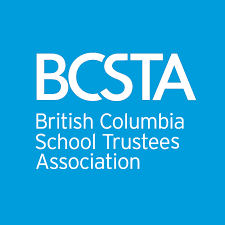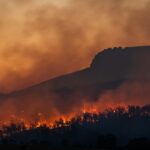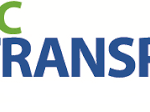The BCSTA Calls for Action on Climate Change in Schools: New Report on Achieving CleanBC Emissions Targets
The British Columbia School Trustees Association (BCSTA) is pleased to announce the release of its Climate Action Working Group (CAWG) report, “Sustainability as Part of Board of Education Governance,” a comprehensive call to action for school districts in British Columbia to prioritize climate change mitigation and adopt sustainable, impactful strategies. This report urges school boards across the province to embrace climate action as a core part of their governance and into their strategic priorities, in alignment with the provincial CleanBC goal of reducing greenhouse gas emissions by 50% by 2030.
As our planet faces mounting climate challenges, school districts are on the front lines, directly impacted by rising temperatures, extreme weather events, and the ever-growing need for sustainable practices in education. The BCSTA’s CAWG calls for urgent support to help school districts address these environmental challenges and meet critical emission reduction targets. This report provides actionable recommendations to guide schools and provincial ministries toward effective climate action.
Key Recommendations and Areas of Focus:
1. Enhanced Governance and Support for Climate Action
The report highlights the need to advocate for sustainable funding, promote leadership and collaboration with provincial ministries, and make climate action a strategic advocacy priority. Clear policies and strategies must be developed to enable school boards to meet the CleanBC emissions reduction target
2. Impact of Climate Change on School Districts
School districts are facing significant challenges from climate change, including rising costs for mitigation, impacts on student and staff health, and regional differences between rural and urban areas. The priority is advocating for predictable funding, educating boards on climate risks and mitigation strategies, and ensuring region-specific climate action plans to address these diverse challenges.
3. Recommendations for Future Planning
To strengthen climate action in education, the BCSTA advocates for increased and predictable funding, including emergency response funds, while educating boards on climate impacts, risk management, and mitigation strategies, with regular input from rights holders and partner groups, including students.
It is essential to ensure region-specific responses, addressing the unique needs of rural and urban areas, and building a comprehensive database of climate-related disruptions to support future advocacy is in place. Additionally, the BCSTA urges the province, ECC, and other ministries to develop a framework for assessing and measuring the impacts of climate change on schools, districts, and student outcomes.
4. Growth in Climate Action
Significant progress has been made in climate action among school districts. The number of districts adopting climate action plans has increased dramatically from 2 to 23 out of 60 districts. The BCSTA celebrates this progress and calls for continued growth, emphasizing sustainable building upgrades, energy-efficient transportation strategies, and incorporating climate action into district strategic plans.
As we approach the critical target of reducing emissions by 50% by 2030, the BCSTA calls upon all school boards, governments, and ministries to unite in this vital cause. The time to act is now, and the future of B.C. students depends on our commitment today.
“Climate action is not just an environmental responsibility – it is a fundamental duty to safeguard the health, well-being, and future of our students and staff. We must prioritize sustainability as a core element of governance in every school district, ensuring we create a resilient, green, and equitable future for all. The BCSTA is committed to advocating for the resources and support necessary to make this vision a reality,” said Carolyn Broady, President of the Board of Directors for the BCSTA.
For further information on the BCSTA’s Climate Action Working Group report and to access the full document, please visit: https://bcsta.org/news/reports/


























Comments